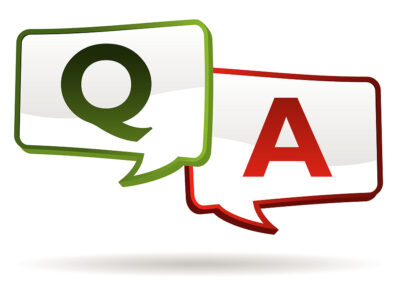
Here are the most-asked marketing questions from 2023:
- Do I have to do marketing?
Yes, even if it is just in-person networking. If you want actual results with your business, you need to take action to generate new leads and sales. Using marketing techniques increases your ability to do this.
- Do I have to use social media (email marketing, podcasts, videos, etc.)?
Which social media sites do I need to use?
Using ALL marketing channels your audience uses will allow you to reach them more effectively. Identify the channels your target audience uses. Start with the ones they use most, have a strategy to measure performance, know what is working, and if you need to start on other channels.
- How often do I need to post on social media?
Post as often as you need to get the attention of and engage your desired audience. It depends on your audience, but remember, the internet is a busy, noisy place, so the more you post, the more likely users will see your posts. As you see the results of your posts, you will learn which content does best at what times and frequency. - How can I go viral?
How do I get more followers?
How do I get more people to comment and share on social media?
Connect and engage with the right audience “where they live” with relevant, remarkable content they just can’t help but share. Don’t forget the call to action to ask them to share or provide some other motivation. - Do I have to have a website? Can I just use Facebook or Instagram?
Many small businesses and solopreneurs start using just social media, but you should aim to have a website as the base of your marketing as it is the only channel you truly own and control. What if you rely solely on Facebook, and your profile gets taken down because they think you posted something against their guidelines? Some potential customers may not take your business seriously if you don’t have a website.
- Do I need to have a blog?
You don’t need to call it a blog, but current, categorized, “optimized” content added to your site regularly is the best way to get “free” traffic from search results. It is also a great way to answer potential customers’ questions about your business at various stages of the “buyer’s journey.”
- Should I use ChatGPT (or another AI content generation tool) to write my website, posts, etc.?
No, and yes. If you use an AI tool to generate content, you risk having incorrect, outdated content considered plagiarized. Use these tools to generate ideas and start research, but you must check the facts and edit enough to make it your own! - My competitor is doing XYZ (tactic). Should I be doing XYZ, too?
Maybe. You don’t know if that tactic is working for your competitor. It’s good to keep an eye on what your competitors are doing and consider this information in your overall strategy. - What is a marketing strategy, and why do I need one?
To effectively and efficiently achieve the goals you have for your business, you need a detailed, realistic action plan that will lead you to those goals. - Why do I need to target segments of my audience? I want to sell to everyone!
You must deliver a specific message to reach, engage, and connect with your target audience. You do that by identifying particular segments that have common needs and other elements that you can use to create a compelling message that will win them over. - What KPIs should I use to measure success with my marketing?
Your KPIs (key performance indicators) should align with your overall goals and specific goals for each campaign: amount of sales, return on investment, number of visits to your website from the campaign, etc. - How much should I invest in my marketing?
Your sales and marketing budget will depend on several factors: the stage of your business, how much awareness your brand currently has, the financial goals of your business, the strength of your competition, your industry, sales methods, etc. First, look at your financial goals and what is feasible to spend on all aspects of sales and marketing. Then, consider the desired and likely returns from each marketing activity. While ROI is significant, you should also look at the long-term benefit of increased brand awareness, especially in the early stages of a business.
According to the Deloitte CMO Survey, Fall 2023, on average, businesses spent 10.6% of overall budgets on marketing. This varied considerably for the smallest category of companies. Those with less than 50 employees spent an average of 18.1% of their budgets on marketing. The average for businesses larger than this was 9.1% (50-99 employees) to 8.1% (greater than 10K employees). This variance was similar when looking at the average percent of budget spending based on annual revenue: 18% for those with less than $10M, 8.5% for those with $10M-25M, and 8.4% for those greater than $10B. Smaller businesses and sole traders will need to spend an even higher percentage on marketing and have a strategic plan to use these funds wisely and get their businesses to the next level.
An effective, realistic marketing strategy answers nearly all people’s questions about marketing. Define specific goals. Know your audience. Have a strategic action plan aligned with your goals and budgets. Set and monitor KPIs to see what’s working and not working.
Develop an effective, realistic marketing strategy for your business, or get the answers to other questions you have about marketing:
Click here to visit AnnDonnelly.com and book a call.


